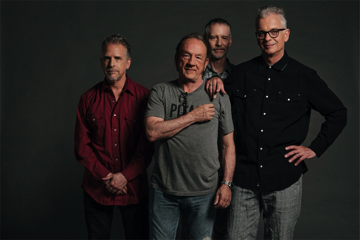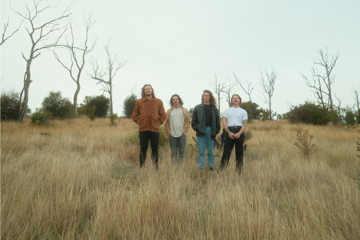Martha Wainwright On Fighting For Her Music And Allowing Her Nakedness
"I was never some child prodigy, I didn't look at a piano and know how to play it."

"I don't have very much musical talent," says Martha Wainwright, not with any sense of self-effacement, but only honest self-appraisal. The 40-year-old Canadian sees her songbook as a work of emotion over composition, her career one of slow, steady refinement. It's something, Wainwright says, that has never come easily.
"I'm not a musical genius, nor am I particularly a natural musician," she explains. "I'm a good singer, but I worked on it a lot. I've worked on my craft, practiced the guitar, gotten better. I was never some child prodigy, I didn't look at a piano and know how to play it. I think I've had to fight for my music, in a way, because it wasn't so natural. I think you can hear that fight in my music, especially in my early music."
Wainwright's perceptions of her own musical abilities are entirely informed by the fact that she was raised in a family of talented musicians, and, still, is routinely compared with her brother Rufus, who very much was — and is — the musical prodigy. Her father is the oddball singer-songwriter Loudon Wainwright III, her mother the late Kate McGarrigle, of the McGarrigle sisters. She grew up split between the "toughness" of New York and the "innocence" of Montreal, moving between her largely absent father, and her mother and aunt.
"I'm a good singer, but I worked on it a lot. I've worked on my craft, practiced the guitar, gotten better."
"I was pretty goofy, pretty quirky, always a little bit different. Being different was applauded in my family growing up; not being too normal was a good thing," Wainwright offers. "Playing music was very nurtured, and very normalised. That's what my parents did. In a way, my choice is very uncreative, very predictable."
Don't miss a beat with our FREE daily newsletter
The Wainwright-McGarrigle clan is famous for writing songs about each other; her parents trading barbs through song following their acrimonious divorce. The song that put Martha on the map, from her 2005 debut LP, was an ode written to her father called Bloody Mother Fucking Asshole, enshrining her in the family tradition of songwriting confession and candour.
"There's certainly not much of a persona that I've created that I hide behind," says Wainwright. "I tend to be very open and candid on stage, there's storytelling that's very open and autobiographical. My family, we've been known to write songs about each other, and in and around each other. In that way, we let people into our stories, it's a real window into our lives. It's not a whole picture, but a view through a window that I'm allowing people to look into, to see a nakedness. It's a willingness to expose myself. I don't say that in a grotesque way, this idea of exposing my naked self. It's more that I always wanted to be on stage, to be seen, to be heard, to have people notice me."
On stage, Wainwright says, she feels at home; able to project her feelings, and her life, in grand gesture. "I have a tendency to be very emotive in my music. To be very forward in the way I sing, the way I express myself. I don't know if that's a reflection of who I am and how I am in real life — I'm far more shy off stage than on stage — but it's a part of me, and they're certainly things that I'm feeling. I use music in a really aggressive way, to be quite emotional and quite exposed."
Wainwright's latest album, Goodnight City, seems as if it is a step aside from that incredibly personal approach; especially after her last solo LP, 2012's Come Home To Mama, was made in the wake of her mother's death. For her fourth album, Wainwright outsourced the writing of half the songs, to people like Glen Hansard, Tune-Yards, Beth Orton, and even the novelist Michael Ondaatje. But, half the songs are still hers, and boast confessions like "I used to do a lot of blow" and "we made love in Melbourne, Adelaide and Perth". And even those songs by others were written specifically for her, and even about her.
"I wanted people who knew me, so that they'd be thinking about me, putting themselves in my head," Wainwright says. "I think the best example of that, and the most obvious example of the two artists melding, is my brother's song. It's partly because we're related, I'm sure. Rufus wrote this song about Francis, my son, who is two and a half. Rufus wrote this song, clearly, for me; it's written as me singing to my son. But, at the same time, it sounds like such a Rufus Wainwright song. He's playing the piano, I'm singing, it's this pure fusion of the two of us. It's like, if someone is a fan of both Rufus and myself - some people like both of us, though some are adamant about only liking one or the other - then this is their dream come true."







